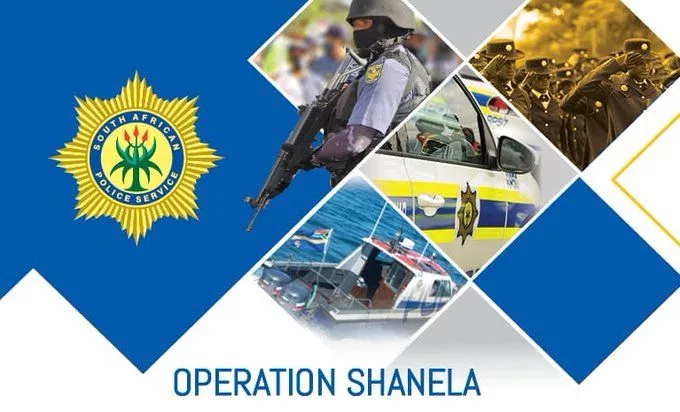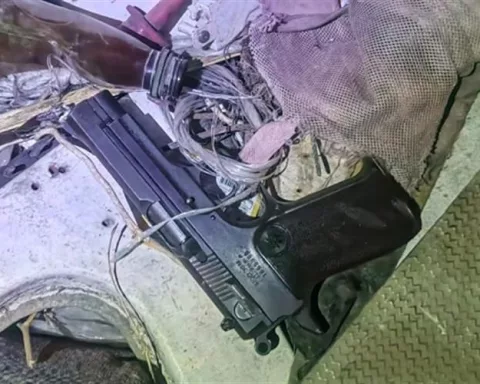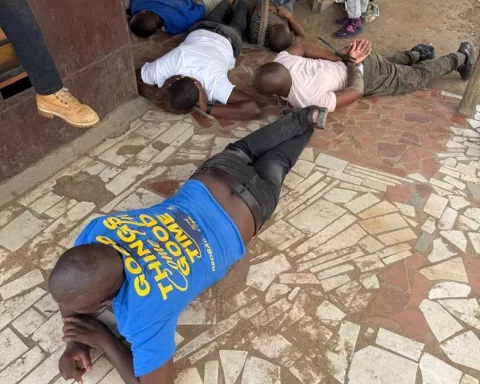Operation Shanela is a law enforcement strategy in South Africa’s Free State that combines different police elements to combat crime. The initiative has been successful in capturing over 900 suspects involved in various criminal activities, including drug possession, homicide, and property damage. Operation Shanela has dealt significant blows to illicit trades such as the cigarette and drug business, and law enforcement continues to carry out operations to build on their accomplishments. The initiative’s success demonstrates the power of multidisciplinary collaboration in combating crime.
What is Operation Shanela and how does it work?
Operation Shanela is a comprehensive law enforcement strategy in the Free State that combines various elements of the police service. It integrates detective tracking and tracing activities with stringent stop-and-frisk operations, roadblocks, and augmented police presence, resulting in significant outcomes such as the capture of more than 900 suspects implicated in various crimes. The operation embodies the strength of cooperation and sets a precedent for fostering safety in a multifaceted and intricate community.
Section 1: Embodying Integration in Law Enforcement
In the core of South Africa, a scheme, popularly known as Operation Shanela, is boldly defying conventional methods in crime deterrence. Attaining significant outcomes in the Free State, the initiative embodies a dynamic alliance among various elements of the police service. This alliance uniquely merges detective tracking and tracing activities with stringent stop-and-frisk operations, roadblocks, and augmented police presence.
The successfulness of Operation Shanela is rooted in its integrative approach, amalgamating diverse sectors of law enforcement to function as a unified entity. It stands as an epitome of the strength of cooperation and sets a precedent for fostering safety in a multifaceted and intricate community.
Section 2: Captivating Success Stories
One of the most notable triumphs of the initiative was the capture of more than 900 suspects in a relatively brief timeframe. Those held were implicated in drug possession, assault, homicide, and intentional property damage. The extensive operation further detained several individuals for unlawful possession of deadly weapons and property-related crimes.
In a remarkable episode in Virginia, the combined efforts of Operation Shanela led to the confiscation of a pair of suspicious vehicles and the detention of their occupants. A total of three persons, including a woman, were captured, and an unlawful firearm was discovered and seized. This occurrence emphasizes the potency of the operation, which utilizes intelligence exchange and coordinated initiatives across law enforcement agencies.
The influence of Operation Shanela extends further than traditional criminal activities. In Rouxville, a foreign national was arrested after his vehicle, packed with crates of illegal cigarettes worth roughly R12 million, was intercepted at a roadblock. This detainment signifies a massive setback to the clandestine cigarette business, a more covert but equally damaging criminal endeavor.
Section 3: Impact on Illegal Trades
In a similar context, the operation dealt a considerable blow to the illicit drug trade in Springfontein. Two men, aged 23 and 25, were arrested after highway patrol intercepted them on the N1. Their vehicle held dagga estimated to be worth R1.7 million, a notable find that underscores the operation’s effectiveness in thwarting drug trafficking.
In Batho, a foreign national operating unlawfully was apprehended after he was detected with an unlicensed firearm. The swift action by the police was predicated on intel suggesting the suspect might have been involved in a tuckshop robbery, showcasing the initiative’s proactive approach to crime combat.
Section 4: Broader Scope and Ongoing Commitment
Aside from dealing with criminal activities, the operation also concentrated on immigration control. More than 215 suspects without valid documents to reside in South Africa were handed over to the Home Affairs department for additional proceedings. Simultaneously, Operation Shanela’s broad focus also zeroed in on traffic infractions, with 33 individuals arrested for drunk driving and 253 drivers penalized for breaching the Traffic Act.
Even with these significant advancements, the Operation Shanela initiative remains far from content. Law enforcement agencies continue to carry out operations across the province in a bid to build on their accomplishments. The community is urged to stay involved, with the police encouraging members to keep reporting on crimes and help in identifying possible suspects.
The triumph of Operation Shanela demonstrates what can be accomplished when varied sectors of law enforcement combine forces towards a shared goal. By capitalizing on the strength of partnership, the initiative has made considerable steps in mitigating crime and preserving law and order in the Free State, serving as a motivational model for other regions. It stands as a testament to the power of multidisciplinary collaboration, an approach that, when more universally adopted, can greatly boost the efficiency of law enforcement across South Africa and beyond.
1. What is Operation Shanela and how does it work?
Operation Shanela is a comprehensive law enforcement strategy in the Free State that combines various elements of the police service. It integrates detective tracking and tracing activities with stringent stop-and-frisk operations, roadblocks, and augmented police presence, resulting in significant outcomes such as the capture of more than 900 suspects implicated in various crimes.
2. What are some of the successes of Operation Shanela?
One of the most notable triumphs of the initiative was the capture of more than 900 suspects in a relatively brief timeframe. Those held were implicated in drug possession, assault, homicide, and intentional property damage. The extensive operation further detained several individuals for unlawful possession of deadly weapons and property-related crimes. Additionally, the operation has dealt significant blows to illicit trades such as the cigarette and drug business.
3. How has Operation Shanela impacted the illegal cigarette and drug trades?
Operation Shanela has dealt a considerable blow to the illicit cigarette and drug trades in the Free State. For instance, in Rouxville, a foreign national was arrested after his vehicle, packed with crates of illegal cigarettes worth roughly R12 million, was intercepted at a roadblock. In Springfontein, two men were arrested after highway patrol intercepted them on the N1. Their vehicle held dagga estimated to be worth R1.7 million.
4. What is the broader scope of Operation Shanela?
Aside from dealing with criminal activities, the operation also concentrates on immigration control and traffic infractions. More than 215 suspects without valid documents to reside in South Africa were handed over to the Home Affairs department for additional proceedings. Simultaneously, Operation Shanela’s broad focus also zeroed in on traffic infractions, with 33 individuals arrested for drunk driving and 253 drivers penalized for breaching the Traffic Act.
5. Is Operation Shanela an ongoing initiative?
Yes, despite its successes, the Operation Shanela initiative remains far from content. Law enforcement agencies continue to carry out operations across the province in a bid to build on their accomplishments. The community is urged to stay involved, with the police encouraging members to keep reporting on crimes and help in identifying possible suspects.
6. What can be learned from the success of Operation Shanela?
The triumph of Operation Shanela demonstrates what can be accomplished when varied sectors of law enforcement combine forces towards a shared goal. By capitalizing on the strength of partnership, the initiative has made considerable steps in mitigating crime and preserving law and order in the Free State, serving as a motivational model for other regions. It stands as a testament to the power of multidisciplinary collaboration, an approach that, when more universally adopted, can greatly boost the efficiency of law enforcement across South Africa and beyond.












